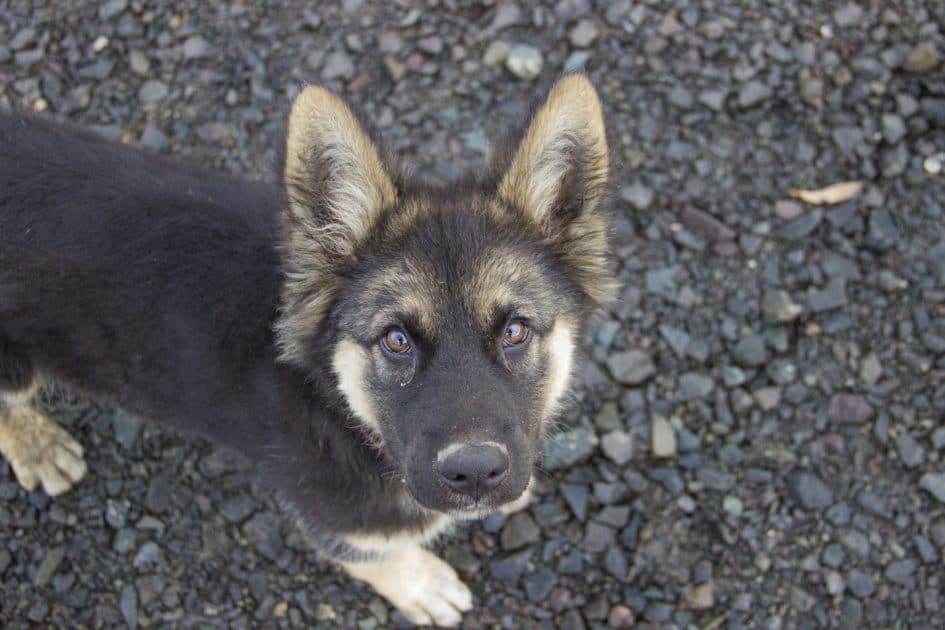

How to Care For a Newborn German Shepherd Puppy
German Shepherd puppies are the cutest pets, but can be very fragile at an earlier stage of life, making it impossible for them to fight and survive alone. Keep reading to find out everything you need to know about newborn German shepherd puppy care.
German Shepherd puppies are the cutest and most playful pets you can have. However, these little babies are often born blind, deaf, and toothless. Since these pups are so fragile at an earlier stage of life, it is nearly impossible for them to fight and survive alone. Unfortunately, due to lack of care, many German Shepherd puppies easily succumb to unfortunate circumstances.
It is essential to know that newborn puppies generally require a lot more care and attention than adult dogs.
Here, we will dive deep into the world of newborn German shepherd puppies so you know how to take care of them.
Important Things to Know About German Shepherd Puppies
Newborn German Shepherds are blind until they are between 8 and 14 days old and deaf until they are 5 to 8 days old. The only thing these little pups can do for a few days after their birth is to sense the warmth of their mother’s body and be as close to her as possible.
These unique-looking puppies are typically born with dark blue or grey eyes, but their physical features keep changing and evolving as they grow. German Shepherd pups can’t stand up or bark until they’re at least 2 to 4 weeks old.
If the first litter of a German Shepherd has more than four puppies, it can render the mother incapable of providing them ample care. This means that there is a potential risk of the newborns getting sick, dying, or becoming very weak until you intervene.
Newborn German Shepherd Puppy Care
Here are a few ways to care for newborn German Shepherd puppies.
Care for the Pups During their Birth
Once your German Shepherd has given birth, you will need to check all the puppies to ensure they are breathing properly. Make sure to keep a close eye on their movements to see that there aren’t any fading pups.
Generally, the mother cuts the umbilical cord and cleans up her puppies by licking them gently. She typically starts with their genitals, moves on to their legs, and then finishes with the rest of their bodies.
However, in some cases, the mother isn’t able to do this correctly if she’s exhausted after her delivery. If that’s the case, then you will have to provide the babies with proper care. You can start by using a disinfectant to clean the cords and then rub their bodies with a clean towel until they dry.
Adjust the Temperature and Humidity
Before delivering, a German Shepherd mother searches for a safe and private space enough for her puppies to be born it. So, as a dog parent, it will be your responsibility to provide your pup with a big enough box to suit her and her puppies. Setting the perfect temperature and humidity levels is one of the major components to make this ‘nest’ comfortable.
Newborn puppies are typically unable to adjust their bodies’ warmth, which can hinder their growth and lead to their death if they are too cold for too long. Therefore, adjusting the temperature of the nest is a rather significant part of keeping these pups healthy.
During the first week of their birth, the ideal temperature of the nest should be between 30º and 32ºC. You can reduce the temperature of the nest to 26º to 28ºC during the second. After the third week, you can set the temperature of the nest at 22ºC.
Generally, German Shepherd mothers are the primary heat source for babies. However, if, for any reason, the mother cannot be in the box, you must provide the puppies with other heat sources, such as a warm lamp or a heating pad.
Moreover, you must also keep the nest’s humidity between 55% and 65% to keep the puppies from getting dehydrated. However, you must remember not to exceed the 65% humidity mark, as your pups could catch some disease caused by too much moisture. The best way to maintain ideal humidity levels for the puppies is to install a humidifier or keep the nest in your laundry room.
Feed the Puppies
A significant part of caring for your newborn German Shepherd puppies is providing them with the right amount of nourishment. The best way to do this is to allow nature to take the wheel. The puppies will be nursed by their mother immediately after the birth, even without the pups unable to see her nipples. A German Shepherd mother typically lactates for two months.
The mother doesn’t secrete milk right after giving birth; instead, she secretes a yellowish substance known as colostrum. Colostrum is incredibly nourishing for German Shepherd puppies as it transmits their mother’s natural antibodies to them.
However, if the mother is unable to provide her pups with this nourishment, you will have to search for other sources. Usually, the next best alternative is to locate another lactating mother, but if you’re unable to find this substitute, you should opt for artificial feeding. You can create an artificial feeding by having a veterinarian prescribe the perfect milk composition that is as good as a German Shepherd mother’s.
The artificial feeding must be served to the puppies in feeding bottles at a temperature of 37°C, once every three hours until 3 weeks of age, and as with a newborn human baby, test the temperature of the milk solution on your hand before feeding.
Take Note of Hygiene
Maintaining the hygiene of the puppies and their nest is an integral part of keeping them in good health. The puppies don’t produce a lot of waste after being born, and what is produced is usually cleaned up by their mother. However, it is best to maintain a clean environment by disinfecting the nest and replacing the blanks or towels once a day. Additionally, you must only start bathing the puppies after 45 days of their birth.
Wrapping Up
This article only provides you with the basics of newborn German Shepherd puppy care. It’s best to consult a veterinarian for any further help or assistance.
Discover how to create a joyful, healthy home for your pet.
Subscribe to your weekly rundown of practice, real life ideas and training tips straight to your inbox.


